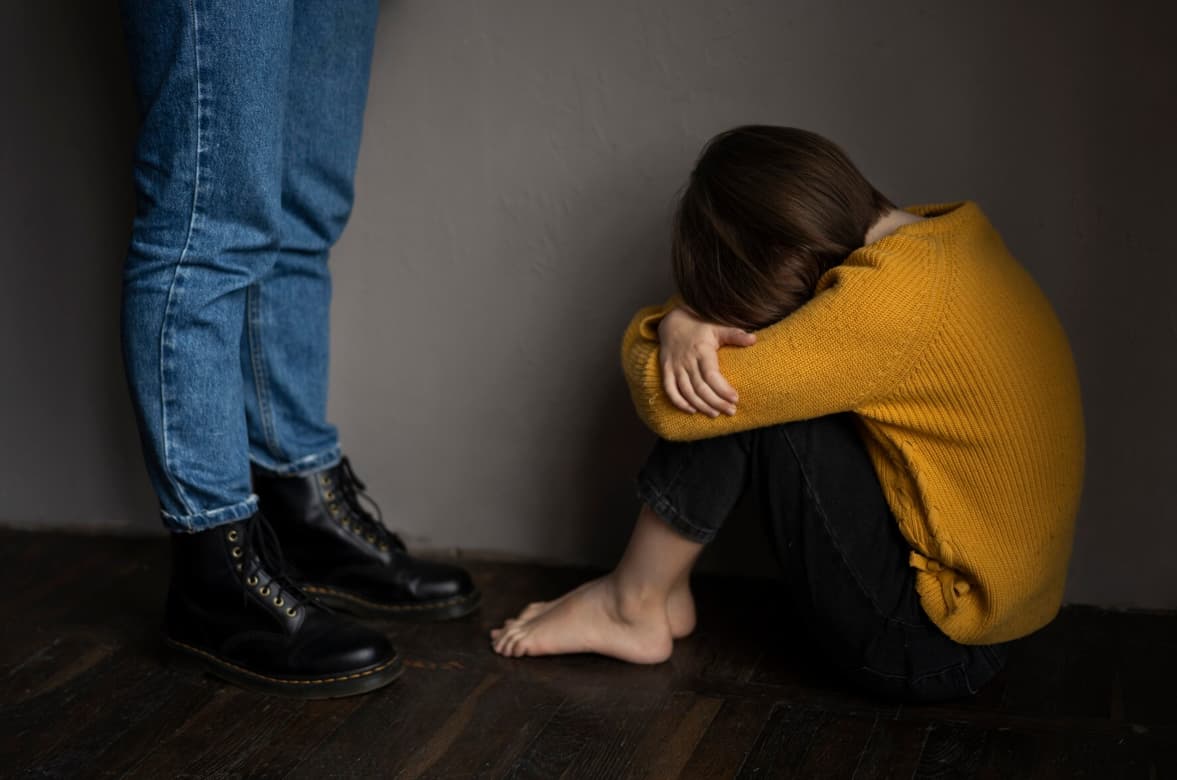In a world where domestic violence continues to affect millions of lives, dedicated individuals stand up to make a real difference. Among these champions, domestic violence advocate Kim Wilson has emerged as a powerful voice for change and healing.
Her tireless work supporting survivors, pushing for stronger laws, and teaching communities about domestic violence has earned her deep respect in this important field.
Through her partnerships with key organizations and her focus on trauma-informed care, Wilson has helped countless survivors find safety and rebuild their lives.
What sets Wilson apart is her deep understanding of how domestic violence affects people in different ways.
She knows that helping survivors isn’t just about offering immediate safety – it’s about providing long-term support, changing how communities respond to abuse, and making sure survivors have the resources they need to heal.
Her work touches many areas, from direct support to survivors to training professionals and working to change laws that affect domestic violence cases.
Wilson’s impact goes beyond individual help – she works to create lasting change in how society handles domestic violence.
Domestic Violence Advocate Kim Wilson

Her focus on trauma-informed care and her push for better legal protections show her commitment to fixing the bigger problems that allow domestic violence to continue.
Through education, advocacy, and direct support, she helps create safer communities and better futures for survivors.
Understanding Domestic Abuse
What Makes Abuse Different from Normal Conflict?
Domestic abuse isn’t just about arguments or disagreements. It’s about one person trying to control another through fear and power. This understanding guides how Wilson approaches her work with survivors.
Types of Abuse People May Face:
- Physical Violence
- Hitting, pushing, or hurting someone
- Breaking things causes fear
- Stopping someone from getting medical help
- Using weapons to threaten or harm
- Mental and Emotional Abuse
- Making someone feel worthless
- Constant criticism and put-downs
- Playing mind games
- Making threats about children or pets
- Financial Control
- Taking someone’s money
- Not letting someone work
- Making all money decisions alone
- Hiding family income
- Social Isolation
- Keeping someone from friends and family
- Checking phones and messages
- Following or stalking
- Controlling where someone goes
The Real Impact of Abuse on Lives
| Area Affected | Short-term Effects | Long-term Effects |
|---|---|---|
| Physical Health | Injuries, pain, bruises | Chronic health issues, disability |
| Mental Health | Fear, anxiety, confusion | PTSD, depression, trust issues |
| Children | Fear, behavior problems | Lasting trauma, relationship issues |
| Work Life | Missing work lost jobs | Career setbacks, financial problems |
| Social Life | Isolation lost friendships | Difficulty making new relationships |
Kim Wilson’s Journey as an Advocate
Early Career and Motivation
Wilson’s path to becoming a domestic violence advocate started in social services. Working directly with families, she saw how abuse affected not just individuals but entire families and communities. This experience showed her the need for better support systems and more understanding approaches to helping survivors.
What Shaped Her Approach:
- Seeing gaps in support for survivors
- Understanding the need for trauma-informed care
- Recognizing how different types of help must work together
- Learning from survivors about what helps
Building Knowledge and Skills
Wilson devoted herself to learning everything she could about helping survivors effectively:
- Professional Development
- Studied trauma and its effects
- Learned about legal systems
- Trained in crisis intervention
- Developed skills in safety planning
- Building Partnerships
- Connected with legal services
- Worked with mental health providers
- Joined advocacy networks
- Created community support systems
Key Contributions and Achievements
Major Programs and Initiatives
Wilson has helped create and improve several important programs:
- Family Advocacy and Support Services (FASS)
- Combined legal help with emotional support
- Created better safety planning methods
- Provided trauma-informed care training
- Developed new ways to help children affected by abuse
- Legal System Improvements
- Helped make courts safer for survivors
- Trained judges and lawyers about domestic violence
- Created better ways to protect survivors in court
- Pushed for stronger laws against abusers
Success Measures Table
| Area | Impact | Benefits |
|---|---|---|
| Direct Support | Thousands of survivors helped | Safer lives, better futures |
| Training | Hundreds of professionals trained | Better support for survivors |
| Legal Changes | New laws and protections passed | Stronger safety measures |
| Community Education | Many communities reached | Better understanding and support |
Community Outreach and Education
Teaching Communities to Help
Wilson believes that ending domestic violence requires everyone’s help. She leads many different types of training:
- For Regular Community Members
- How to spot signs of abuse
- Safe ways to help someone in danger
- Where to find help locally
- How to support survivors
- For Professionals
- Special training for police
- Help for healthcare workers
- Guidance for teachers
- Support for counselors
Breaking Down Barriers
Wilson works hard to remove things that stop people from getting help:
- Language and Cultural Barriers
- Materials in different languages
- Cultural sensitivity training
- Partnerships with cultural groups
- Diverse support options
- Access Issues
- Help for rural areas
- Support for disabled people
- Services for older adults
- Resources for LGBTQ+ people
Legislative Advocacy
Working for Better Laws
Wilson knows that good laws help protect survivors. She works to:
- Improve Existing Laws
- Make restraining orders stronger
- Increase penalties for abusers
- Protect survivors’ privacy
- Support survivors’ housing rights
- Create New Protections
- Laws against financial abuse
- Better child custody rules
- Workplace protections
- Housing safeguards
Policy Changes Table
| Type of Change | What It Does | Why It Matters |
|---|---|---|
| Court Safety | Keeps survivors away from abusers | Reduces trauma in court |
| Housing Rights | Makes it easier to break leases | Helps survivors escape safely |
| Job Protection | Prevents firing due to abuse | Supports financial independence |
| Privacy Laws | Protects survivors’ information | Keeps locations secret from abusers |
The Importance of Trauma-Informed Care
Understanding Trauma’s Effects
Wilson champions trauma-informed care because she knows trauma affects how people:
- Think and feel
- Make decisions
- Trust others
- Handle stress
Key Principles Wilson Teaches:
- Safety First
- Physical safety planning
- Emotional safety measures
- Safe spaces for healing
- Confidential services
- Trust Building
- Consistent support
- Clear communication
- Respectful treatment
- Patient understanding
- Empowerment
- Supporting choices
- Building confidence
- Teaching skills
- Encouraging independence
Challenges and Future Goals
Current Challenges
Wilson continues to face important challenges:
- System Problems
- Overcrowded shelters
- Limited legal help
- Not enough funding
- Complex court systems
- Social Issues
- Shame about abuse
- Fear of getting help
- Cultural barriers
- Community attitudes
Future Plans
Wilson’s goals for the future include:
- Expanding Services
- More rural programs
- Better online help
- More language options
- New support methods
- Improving Systems
- Better court processes
- More training programs
- Stronger laws
- Better funding
Frequently Asked Questions
- What is Kim Wilson’s primary role as a domestic violence advocate?
Wilson helps survivors find safety, get legal help, and heal from abuse. She also works to change laws, train helpers, and teach communities about domestic violence.
- How does Kim Wilson promote trauma-informed care?
She trains service providers to understand trauma’s effects and provide care that helps people heal. This includes creating safe spaces, building trust, and supporting survivors’ choices.
- What organizations does Kim Wilson collaborate with?
Wilson works mainly with Family Advocacy and Support Services (FASS) and the West Virginia Coalition Against Domestic Violence (WVCADV), plus many local groups.
- What are some of Kim Wilson’s legislative achievements?
She has helped pass laws that:
- Protect survivors in court
- Support housing rights
- Strengthen restraining orders
- Improve privacy protection
- How can communities help reduce domestic violence?
Communities can:
- Learn about domestic violence
- Support local services
- Speak up against abuse
- Help survivors find resources
Also Check:
Conclusion:
Kim Wilson’s work as a domestic violence advocate shows how one person’s dedication can help many people find safety and healing.
Her focus on trauma-informed care, commitment to changing laws, and work teaching communities create lasting positive change.
Through her efforts with organizations like FASS and WVCADV, she helps build stronger support systems for survivors.
Wilson’s approach to helping survivors – understanding trauma, supporting choices, and working for system changes – offers a model for effective advocacy.
Her work reminds us that ending domestic violence requires both helping individuals and changing how society handles abuse.
As domestic violence continues to affect many lives, advocates like Wilson play a crucial role in supporting survivors and creating positive change.
Her dedication to this work, focus on trauma-informed care, and push for better laws and services help create safer communities and better futures for survivors of domestic violence.



